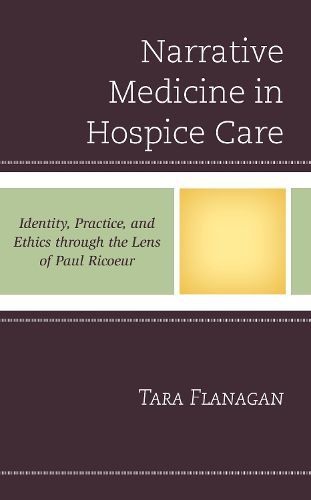Readings Newsletter
Become a Readings Member to make your shopping experience even easier.
Sign in or sign up for free!
You’re not far away from qualifying for FREE standard shipping within Australia
You’ve qualified for FREE standard shipping within Australia
The cart is loading…






Narrative medicine, an interdisciplinary field that brings together the studies of literature and medicine, offers both a way of understanding patient identity and a method for developing a clinician's responsiveness to patients. While recognizing the value of narrative medicine in clinical encounters, including the ethical aspects of patient discourse, Tara Flanagan examines the limits of narrative practices for patients with cognitive and verbal deficits. In Narrative Medicine in Hospice Care: Identity, Practice, and Ethics through the Lens of Paul Ricoeur, Flanagan contends that the models of selfhood and care found in the work of Ricoeur can offer a framework for clinicians and caregivers regardless of the verbal and cognitive capabilities of a patient at the end of life. In particular, Ricoeur's concept of patient identity connects with the narrative method of life review in hospice and offers an opportunity to address the religious and spiritual dimensions of the patient experience.
$9.00 standard shipping within Australia
FREE standard shipping within Australia for orders over $100.00
Express & International shipping calculated at checkout
Narrative medicine, an interdisciplinary field that brings together the studies of literature and medicine, offers both a way of understanding patient identity and a method for developing a clinician's responsiveness to patients. While recognizing the value of narrative medicine in clinical encounters, including the ethical aspects of patient discourse, Tara Flanagan examines the limits of narrative practices for patients with cognitive and verbal deficits. In Narrative Medicine in Hospice Care: Identity, Practice, and Ethics through the Lens of Paul Ricoeur, Flanagan contends that the models of selfhood and care found in the work of Ricoeur can offer a framework for clinicians and caregivers regardless of the verbal and cognitive capabilities of a patient at the end of life. In particular, Ricoeur's concept of patient identity connects with the narrative method of life review in hospice and offers an opportunity to address the religious and spiritual dimensions of the patient experience.